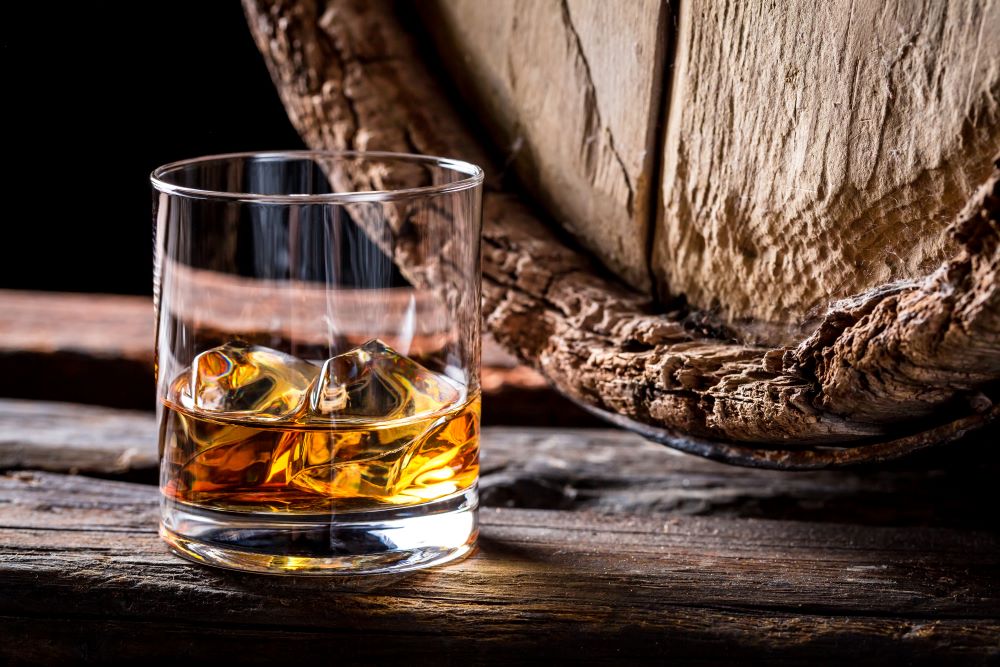
Welsh whiskey wins legal protection
Food Manufacture reports that a north Wales distillery has gained legal protection from attempts to replicate its whiskies, despite only first producing in 2021.
In just two years, Aber Falls Distillery in Abergwyngregyn gained Protected Geographical Indicator (PGI) status, along with its Irish and Scottish competitors.
Welsh rural affairs minister, Lesley Griffiths, weighed in to congratulate the distillery, saying she is “pleased Aber Falls’ product is receiving the recognition it deserves” and celebrating the growth of Welsh whiskey.
“Wales’ whiskey sector has expanded quickly in recent years and is enjoyed by people around the world.”
Aber Falls Distillery exports to 40 countries worldwide and has expanded its production to a 24-hour operation since January.
The PGI status was created in 2021 following the UK’s withdrawal from the EU to safeguard food and drink products from imitation.
Food fight-future
Researchers from the University of York and Anglia Ruskin University have identified food supply chain weaknesses as a potential source of civil unrest in the coming decades.
Sarah Bridle and Aled Jones found that 80% of experts surveyed believed that violent looting or demonstrations were ‘possible’ or ‘more likely than not’ in the next 50 years, with 40% considering this likely in the next decade.
Experts stated structural flaws in the UK’s supply chain and consequential challenges distributing food is the greatest risk factor. Currently just under half of the UK’s food supply is imported, with events such as the Covid-19 pandemic and Brexit highlighting how supply chain vulnerabilities can lead to shortages and price rises.
To reduce the risk of catastrophic distribution issues, the researchers recommended a pivot away from a supply chain geared solely towards efficiency and ‘just-in-time’ supply.
Rice riots
Nikkei Asia is buying into this apocalyptic premise with its report on the latest response to ongoing rice shortages in South-East Asia, as Philippines president and agricultural secretary, Ferdinand Marcos Jr, introduced a cap on the price at which farmers can sell rice, in a bid to alleviate the country’s cost-of-living crisis.
The move, which has been heavily criticised by farmers and economists, reflects the struggles of ASEAN nations to manage the supply of such a sough-after product.
Elsewhere in the region, price caps have been applied in Malaysia and Myanmar, while the Thai government has called on farmers to plant less rice to reduce water usage. As the world’s second largest exporter of rice, after India, Thailand’s move has stoked fears of a further global price surge.
This followed India’s decision to ban basmati rice exports in August. The same month, the all rice price index of the Food and Agriculture Organization (FAO) reached 142.4, a 31% increase on the previous year, as reported by the Jakarta Post.
PepsiCo boost in County Cork
PepsiCo is investing €39m in its Irish manufacturing facility in Little Island, County Cork, according to reports from Food Manufacture.
Around €2.4m of the funds have been earmarked for the installation of solar panels to enhance the site’s green credentials, while the rest will be spent on expanding the site’s manufacturing capacity.
The investment will create 100 new jobs in Little Island, contributing to what Irish foreign minister Simon Coveney termed PepsiCo’s “hugely significant… positive impact on the Irish economy” since its 1974 establishment.
The plant produces well-known fizzy drink brands including Pepsi, 7Up and Mountain Dew.



